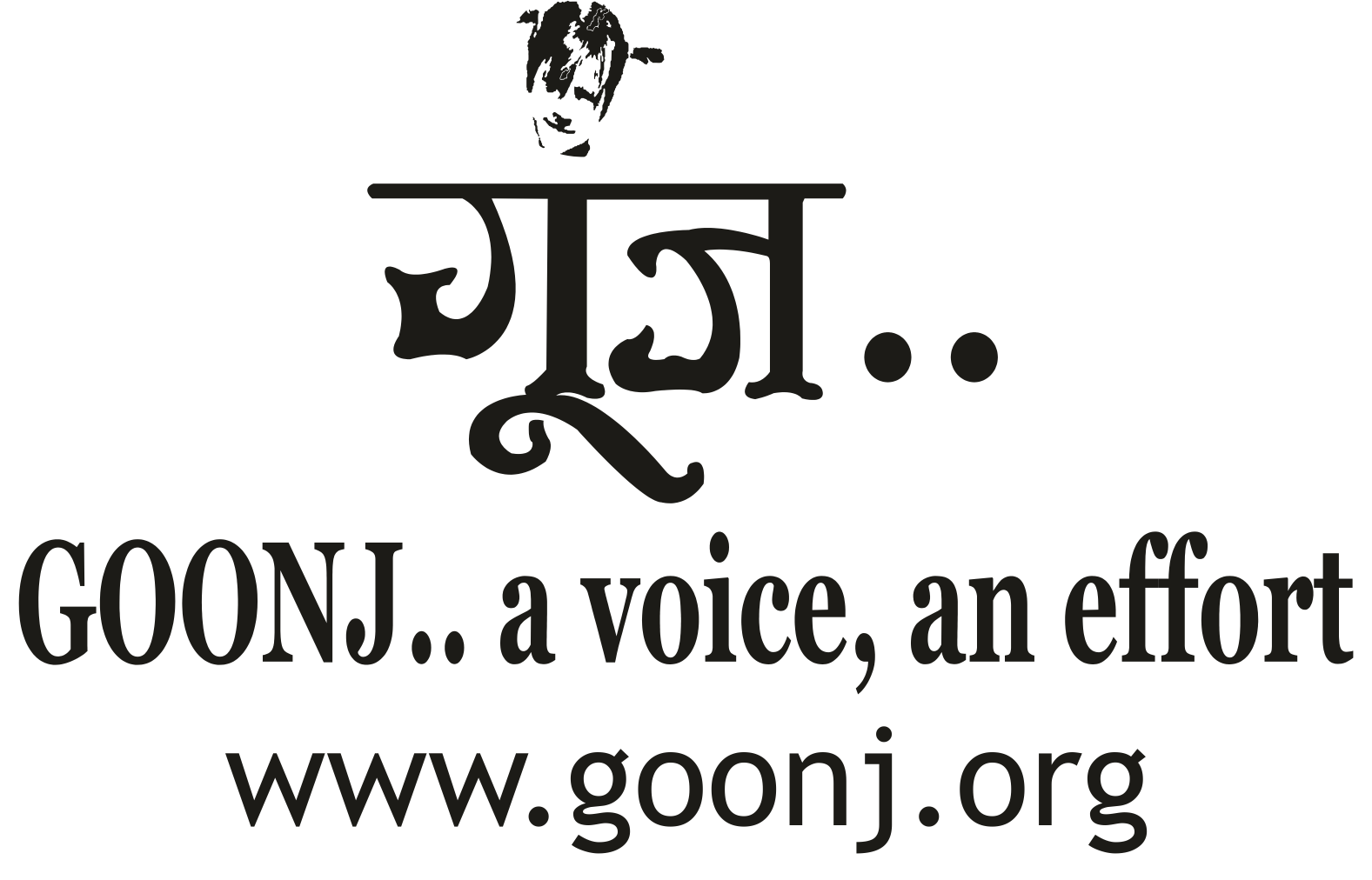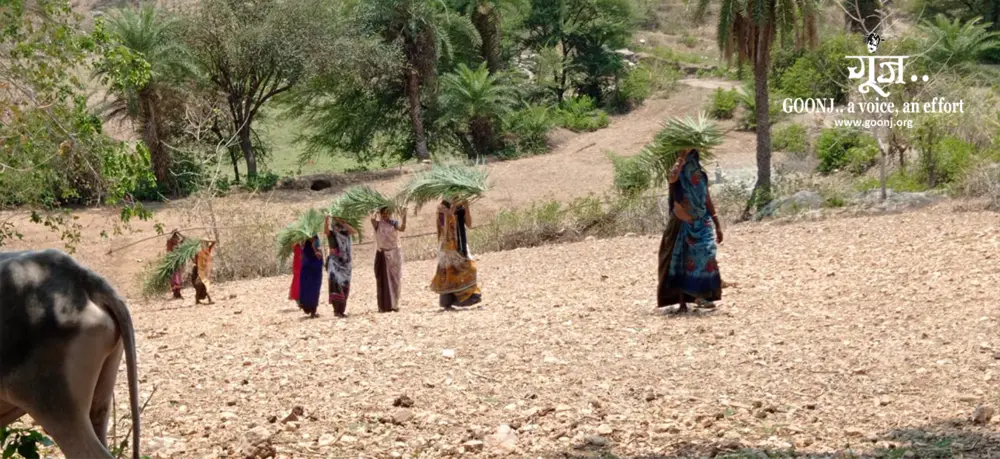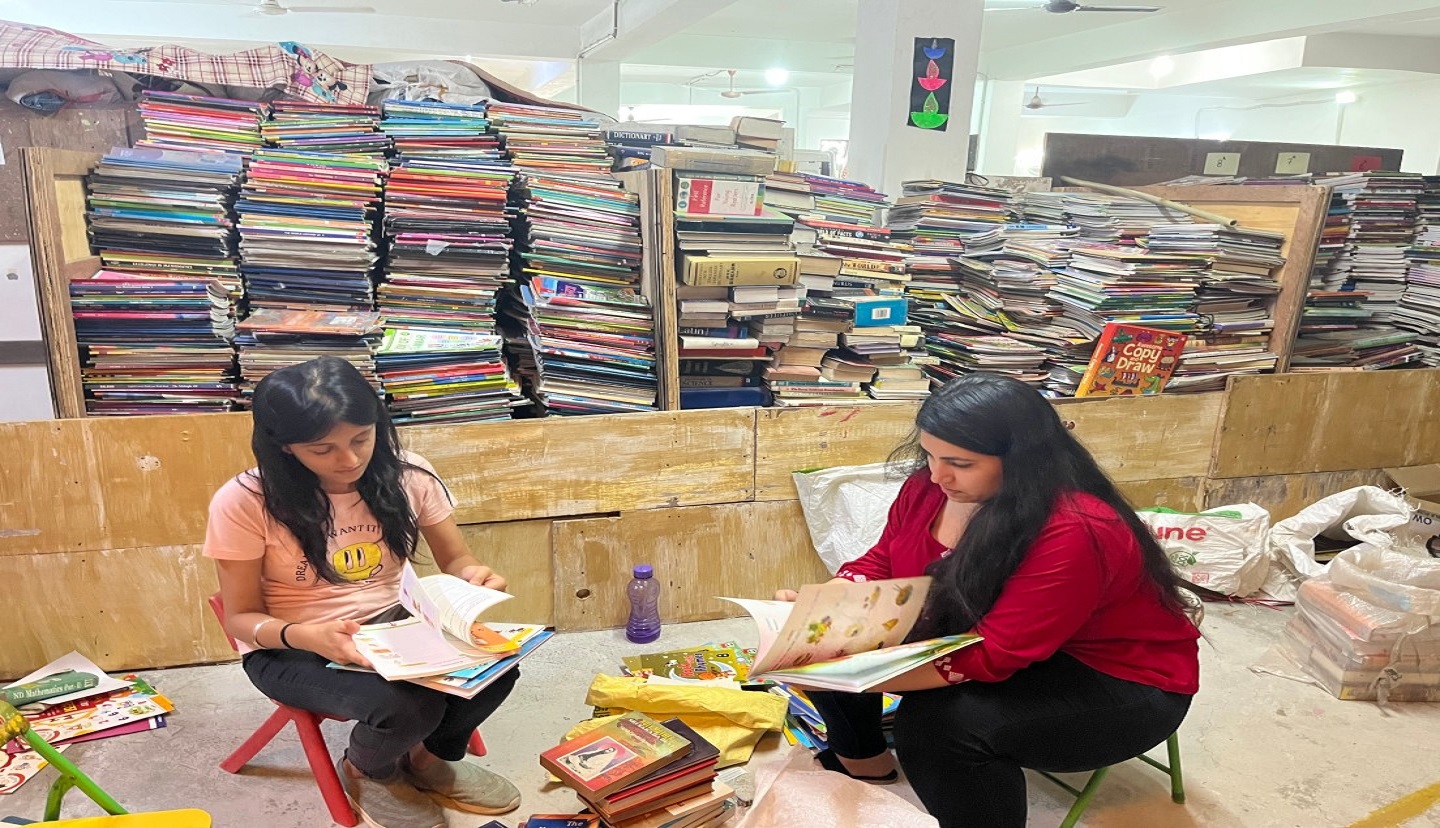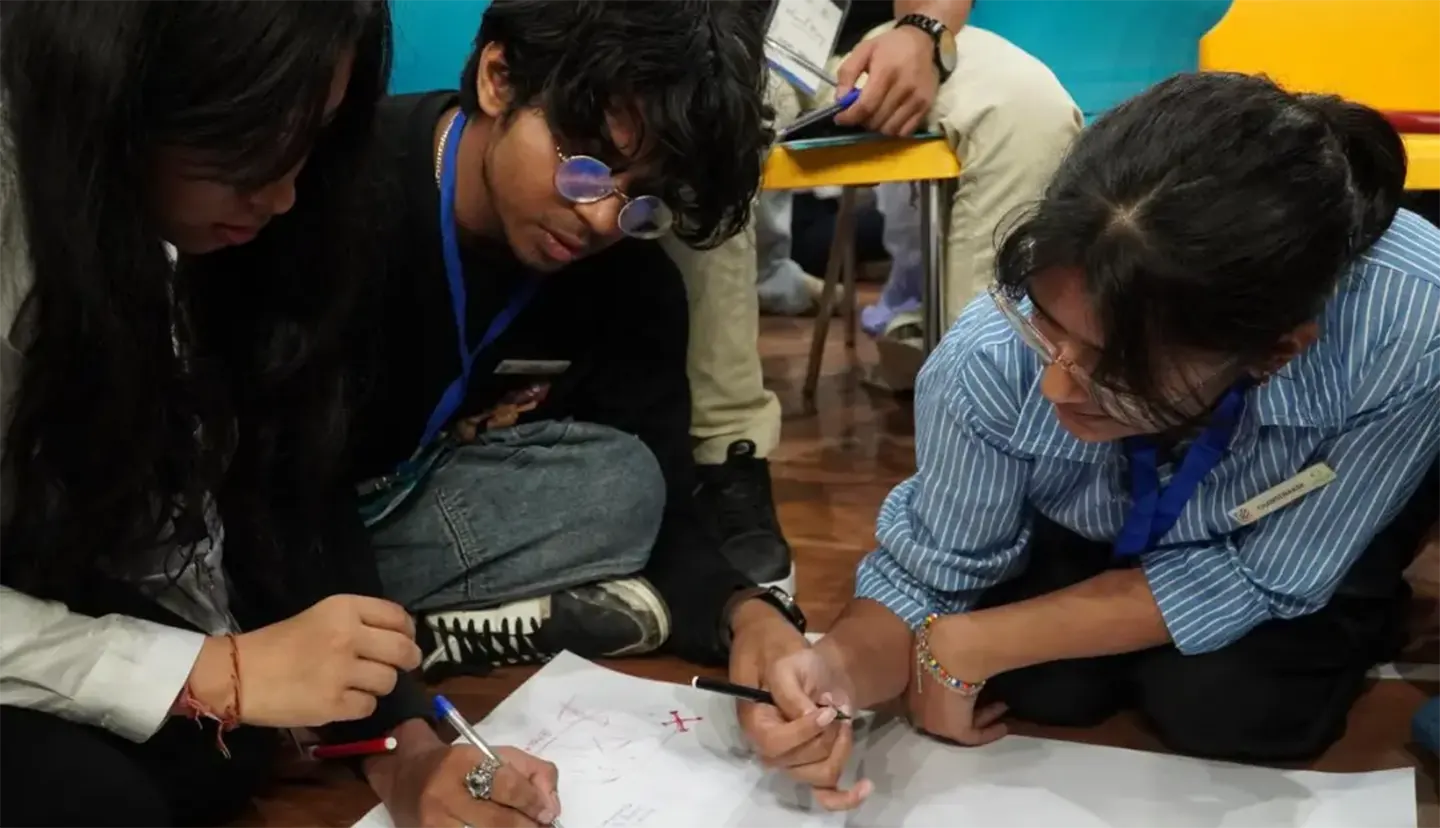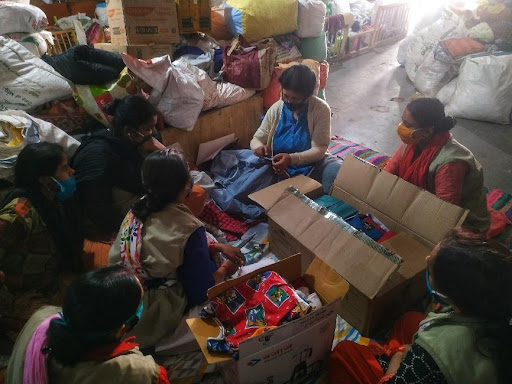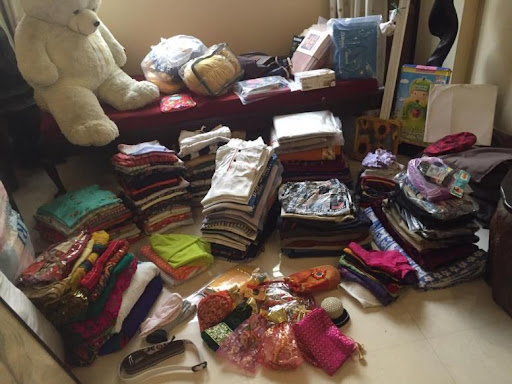A Place of Necessity
Across the world, shelter is seen as a basic need — a space to live with safety and dignity. Yet, in Panasi Bari, a small village in the southern part of Rajasthan’s Banswara district, even this fundamental right was compromised for many.
Scattered homes and widespread poverty meant that young girls and women were forced to bathe and manage their menstrual hygiene in the open, without privacy. Employment opportunities were so limited that many men migrated to Gujarat for daily wage labor, leaving behind households struggling to make ends meet — and without the resources to build private bathrooms.
A Challenge Rooted in Dignity
When a Goonj volunteer arrived in Panasi Bari, conversations with the villagers revealed a shared but rarely spoken hardship: Girls and women had no safe, private space to change clothes during menstruation. The size of the homes and the lack of enclosed spaces led to hesitation, shame, and even health risks due to unhygienic conditions.
This wasn’t just about infrastructure — it was about restoring dignity, health, and confidence for the women of the village.
Community-Led Innovation: Building with What They Had
Spurred by the urgency of this need, 45 women and girls — joined by four men — decided to act.
Harnessing local wisdom and available resources, they came together to build community bathrooms in their mohallas (neighborhoods).
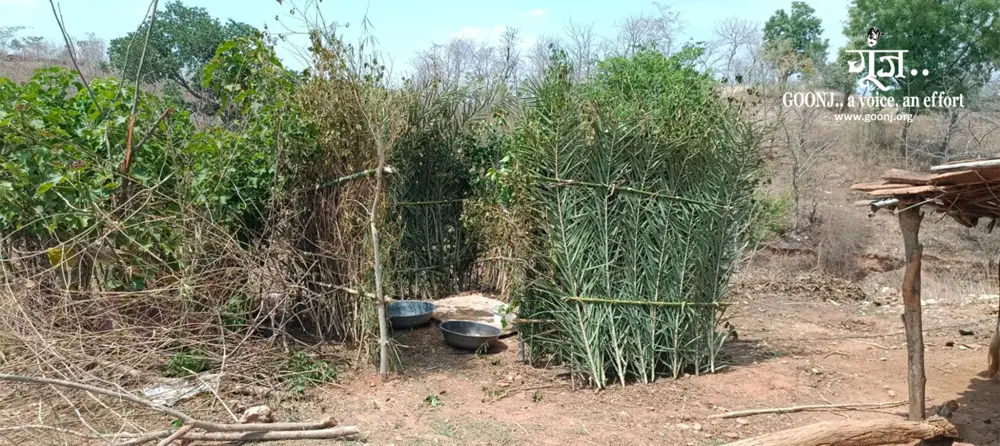
Newly built community bathrooms restoring dignity
- Date palm leaves were collected from distant areas.
- Pits were dug manually.
- Structures were built collectively — with no external contractors, no waiting for external aid.
It was grassroots innovation at its purest: communities designing and executing solutions based on their lived realities.
Voices of Change
During the making of the private spaces, pride and ownership bloomed across the village.
Sita Devi (30 years old): “I never knew that such a beautiful bathroom could be built with local resources around us.”
Thaneswar Ji (38 years old): “Now, the dignity of the girls and all the women in our village will be preserved.”
Kavita Devi, School Teacher (40 years old): “Girls will now be able to change their clothes during menstruation on time, which will reduce menstrual-related illnesses.”
These testimonials reflect a community reclaiming dignity not through charity, but through collective action and resilience.
Beyond Infrastructure: Building Dignity and Health
Today, Panasi Bari stands as a testament to the power of community-led development and grassroots innovation. Through simple materials and shared labor, they didn’t just build bathrooms — they rebuilt the dignity, health, and confidence of their women and girls.
It’s proof that solutions to long-standing challenges often already exist within communities — they simply need to be recognized, trusted, and nurtured.
Be a Part of Change
Our invitation to you is, start from where you are.. From a small change of starting a Goonj kee Gullak or Team 5000, joining a long and deep change process, or things in between- organising a collection drive, a volunteering journey, an internship, or simply walking with us signing for a Goonj monthly newsletter subscription.. More on www.goonj.org or write to [email protected].
Many options, but the choice is always one; Taking Action..
